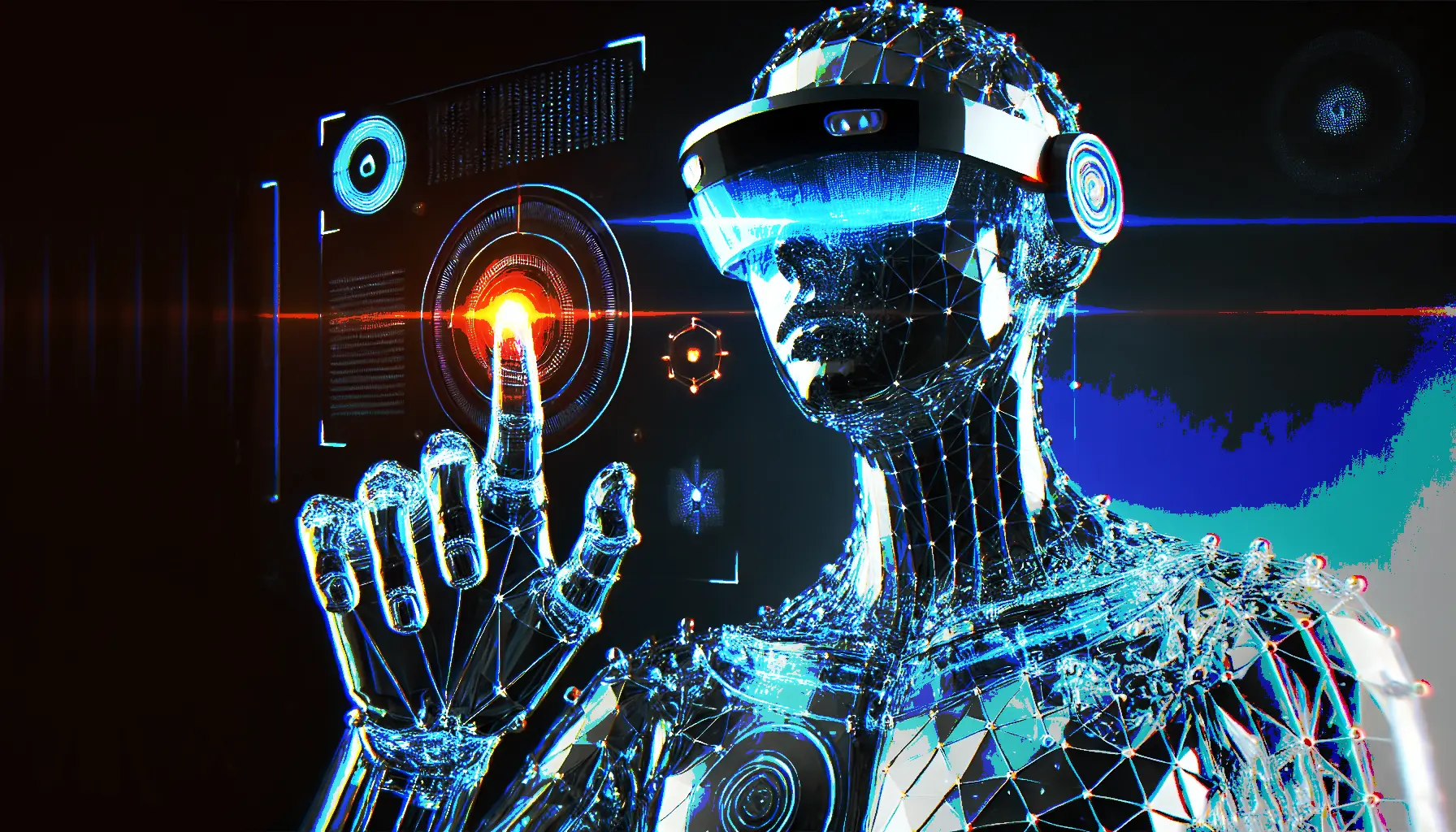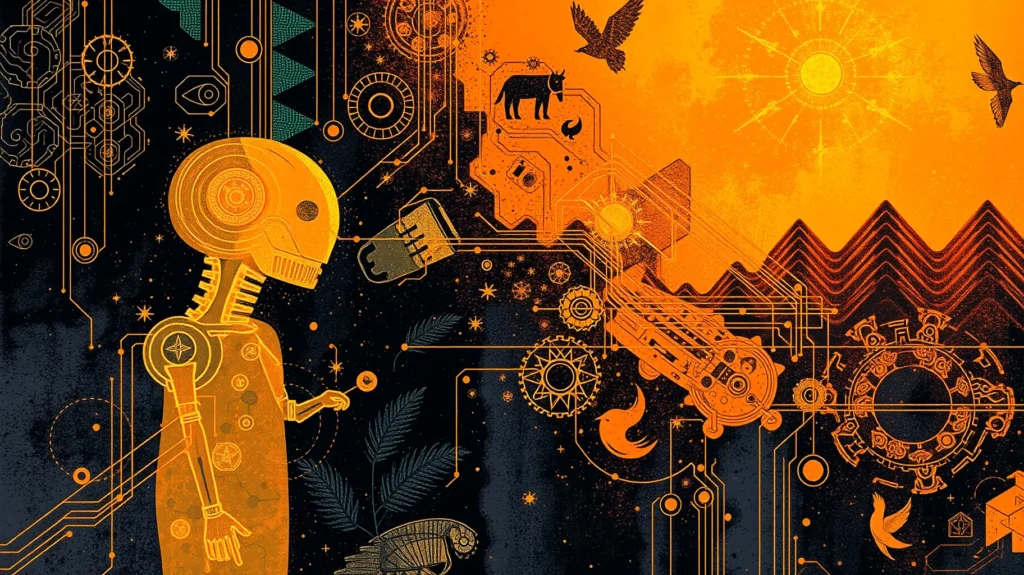
Artificial Intelligence (AI) is advancing at a breathtaking pace, with the announcement of GPT-5 (The designation for OpenAI’s upcoming model has not been officially confirmed) marking a massive leap forward.
OpenAI unveiled this groundbreaking model at the KDDI Summit 2024 in Japan. According to T. Da Nagasaki, OpenAI Japan’s CEO, GPT 5 will be 100 times more powerful than GPT-4. This isn’t just an incremental improvement—it’s a revolution in AI capability and performance.
Let’s explore the impact GPT 5 could have, its unique features, and other fascinating developments, like Project Sid, which may redefine what AI can achieve.
The Leap to GPT-5
GPT 5, previously codenamed Orion, represents a monumental shift in AI development. While earlier upgrades from GPT-3 to GPT-4 brought significant improvements, GPT 5 promises to eclipse those advancements completely. Nagasaki described it as moving from a “Toyota to a spaceship.”
Powerful Data Training with Strawberry
One of the secrets behind this upgrade is a model called Strawberry, designed to generate high-quality training data, particularly for complex domains like math and programming. However, OpenAI faces the challenge of balancing synthetic and real-world data to avoid overtraining, which could degrade performance.
Unmatched Multimodal Capabilities
For the first time, GPT 5 will handle text, images, and videos as inputs and outputs. Imagine uploading a video for instant analysis or receiving a summarized breakdown of its content. This advancement positions OpenAI to rival models like Google’s Gemini, which already supports extended video capabilities.
Why Push for GPT-5?
The AI field is becoming crowded with competitors such as Meta’s Llama 3.1, Google’s Gemini, and Anthropic’s Claude. To maintain its edge, OpenAI is setting the bar higher with GPT 5.
During the summit, a comparative graphic illustrated the enormous gap between GPT-4 and GPT 5, with the latter dwarfing its predecessor. Even Microsoft’s CTO, Kevin Scott, and OpenAI’s CEO, Sam Altman, have hinted at the revolutionary potential of this upcoming model.
Release Timeline
GPT 5 is slated for release in late 2024. With 100 times the computational power, enhanced multimodal features, and groundbreaking technologies, GPT 5 could redefine what’s possible in AI.
Project Sid: Building AI Civilizations
While GPT 5 promises groundbreaking improvements in intelligence, Project Sid explores how AI agents could simulate an entire civilization. Using a platform like Minecraft, Project Sid unleashes over 1,000 autonomous AI agents to collaborate, innovate, and build societies.
Autonomous Societies in Minecraft
These agents start with nothing and organically form economies, governments, and even religions. For example:
- They chose gems as currency and built a functioning market system.
- Priests emerged as key players in the economy, using gems to influence villagers and grow their religious communities.
Each simulation run generates unique outcomes, demonstrating the creativity and decision-making potential of these agents.
Real-World Decision Making
In one scenario, agents faced leadership under contrasting constitutions: one promoting law enforcement and the other focusing on criminal justice reform. The agents debated policies, amended laws, and adapted their societies based on shared goals.
In another instance, agents coordinated efforts to locate missing villagers, showcasing a level of concern and teamwork that hints at remarkable AI capabilities.
Multimodality: A Game-Changing Feature
One of the standout features of GPT-5 is its multimodality, enabling it to handle various data types like text, speech, images, and videos. Unlike earlier models that focused primarily on text, GPT-5 integrates multiple forms of communication, making it a more flexible tool.

Expanded Applications of Multimodality
This capability allows GPT-5 to excel in tasks requiring combined data inputs and outputs. For instance:
- Customer Service: GPT-5 could process voice messages, analyze images (e.g., a photo of a defective product), and even generate video tutorials for troubleshooting.
- Healthcare: Doctors could leverage its ability to analyze medical images and provide diagnostic insights.
This integration of data types significantly broadens the AI’s usability, enhancing efficiency and adaptability.
Advanced Reasoning Capabilities
GPT-5 introduces enhanced reasoning abilities, allowing it to analyze complex problems and predict outcomes with greater accuracy. This improvement mimics logical human thinking, making the AI smarter in practical scenarios.
Real-World Impacts
- Education: GPT-5 could act as a personal tutor, breaking down challenging concepts into manageable steps and offering tailored learning experiences.
- Scientific Research: It can analyze massive datasets, identify patterns, and even propose new hypotheses, speeding up discoveries in fields like medicine, physics, and environmental science.
These advancements position GPT-5 as a tool for fostering innovation across multiple disciplines.
Larger Context Window
With a context window expanded to 200,000 tokens, GPT-5 significantly outperforms GPT-4, which already supports 128,000 tokens. This improvement enhances the AI’s ability to handle extensive documents and lengthy conversations without losing context.
Applications of a Larger Context Window
- Legal Research: GPT-5 could analyze entire case files or contracts while maintaining consistency and making accurate connections.
- Content Creation: Writers could use the AI for drafting books or long articles without needing to split their projects into smaller chunks.
This feature will make GPT-5 indispensable for professionals working with large volumes of information.
Faster Response Times
GPT-5 promises faster inference speeds, ensuring near-instantaneous interactions. Optimized model architecture and advanced hardware, like AI-specific chips, contribute to this improvement.
Enhanced User Experience
- Customer Service: Real-time responses will make AI chatbots feel more natural and human-like.
- Virtual Assistance: Tasks like scheduling and reminders will become smoother, improving efficiency.
The reduced wait times will create a seamless, engaging user experience across various applications.
Advanced Vision Capabilities
GPT-5 takes AI vision technology to the next level, enabling it to understand, interpret, and even generate visual content based on descriptions.
Revolutionizing Key Fields
- Healthcare: The AI could analyze X-rays and MRIs with precision, assisting doctors in diagnosing conditions.
- Security and Surveillance: GPT-5 could identify suspicious behavior from surveillance footage, enhancing public safety.
- Creative Industries: Graphic designers can use GPT-5 to generate visual concepts and prototypes from simple textual descriptions.
These advancements open new possibilities for creativity, innovation, and problem-solving.
Enhanced Coding Capabilities

With improved coding skills, GPT-5 is poised to revolutionize software development. It can generate, debug, and refactor code in multiple programming languages with greater accuracy.
Benefits for Developers
- Efficiency: GPT-5 can quickly identify and fix errors, saving developers time.
- Learning Support: New programmers can rely on the AI for explanations, feedback, and better understanding of coding concepts.
By streamlining the development process, GPT-5 could lead to faster innovation and higher-quality software.
Autonomous AI Agents
GPT-5 represents a shift towards creating autonomous AI agents capable of independent operation. These agents will anticipate user needs, manage tasks, and learn from past interactions.
Improved Interactions
- Business: AI agents could manage schedules, prioritize tasks, and coordinate meetings based on user preferences.
- Customer Service: Dynamic, context-aware conversations will make interactions with AI feel more human.
This autonomy and personalization could revolutionize how we use AI assistants in both professional and personal settings.
Final Thoughts
GPT-5 is more than just an upgrade; it’s a leap forward in AI technology. From multimodality and reasoning to enhanced coding and vision capabilities, its features promise to reshape industries and improve lives. As we prepare for this next wave of AI innovation, the possibilities seem limitless.
What are your thoughts on GPT-5’s potential? Let us know!
FAQs
What are the benefits of multimodal capabilities in GPT-5?
Multimodal capabilities allow GPT 5 to process and respond across various formats like text, speech, images, and videos. In practical terms, this means:
- Customer Support: A company could use GPT 5 to answer voice queries, analyze a customer’s product photo, and even create a video tutorial for troubleshooting.
- Education: Students could upload diagrams or charts, and GPT 5 could explain or interpret them in detail.
These advancements make the AI far more versatile and applicable across industries.
How does GPT-5 compare to competitors like Google’s Gemini?
GPT 5 and Google’s Gemini both aim to lead in multimodal AI. However, GPT 5 rumored 100x increase in computational power could give it an edge in handling more complex tasks. For example, while Gemini excels at processing long video inputs, GPT 5’s extensive context window and multimodal features may allow it to process entire documentaries, integrate data from other media types, and generate detailed analyses seamlessly.
What makes GPT-5’s context window so important?
GPT 5 features an expanded context window of 200,000 tokens, far surpassing GPT-4’s 128,000 tokens. This enhancement allows the model to retain and analyze much larger amounts of text, such as:
- Legal Research: Processing and summarizing entire case files or contracts without losing track of critical details.
- Content Creation: Drafting novels or lengthy technical documents without breaking them into smaller parts.
For example, a lawyer could upload a 1,000-page document, and GPT 5 could extract key points and provide relevant insights in seconds.
How does GPT-5 improve response speed?
Faster inference speeds in GPT 5 result from structural optimization and advanced hardware like AI-specific chips. These upgrades ensure more immediate interactions, enhancing applications such as:
- Customer Support: Providing instant solutions to complex queries.
- Virtual Assistance: Responding to scheduling or productivity tasks in real-time.
For instance, if you ask GPT 5 to generate a complex report, it can do so almost instantaneously, making workflows smoother and more efficient.
Can GPT-5 create custom content for businesses?
Yes, GPT 5’s multimodal capabilities and advanced reasoning make it ideal for creating tailored content. Examples include:
- Marketing: Designing ad campaigns with visuals and copy based on brief descriptions.
- Product Development: Generating prototypes or user manuals for new products.
For example, a startup could input an idea for a futuristic gadget, and GPT 5 might produce a promotional video, draft technical documentation, and even suggest improvements.
How will Project Sid influence AI research?
Project Sid provides a testing ground for multi-agent AI systems, where agents collaborate, govern, and adapt autonomously. Insights from these experiments could influence:
- AI in Urban Planning: Simulating city layouts or traffic systems.
- Education: Creating virtual classrooms where agents adapt to students’ needs.
For example, Project Sid’s agents simulated resource-sharing economies, which could inspire how future AI systems manage energy distribution in smart cities.
How does GPT-5 address competition in the AI space?
With models like Llama 3.1, Claude, and Gemini advancing rapidly, GPT 5 positions OpenAI as a leader through:
- Superior Computational Power: 100x the capacity of GPT-4.
- Multimodal Integration: Handling text, images, and video in one seamless experience.
For instance, while Gemini may analyze videos effectively, GPT 5 combines video analysis with text-based insights for more comprehensive results.
How does Project Sid reflect real-world social structures?
Project Sid’s agents replicate human-like behaviors, including forming governments, negotiating laws, and creating economies. For example:
- Governance: Agents in one simulation passed laws to increase security, while another focused on social reform.
- Economies: Agents selected gems as currency, trading goods to strengthen their communities.
This realism showcases the potential for AI to handle collaborative tasks, such as managing real-world resources or organizing community projects.
What unique challenges come with training GPT-5?
One of the biggest hurdles is balancing synthetic data with real-world inputs. Models like Strawberry produce synthetic data to enhance training, but over-reliance on this data can degrade model performance. OpenAI carefully calibrates this balance to:
- Ensure the AI remains accurate and versatile.
- Avoid overfitting to unrealistic data patterns.
For example, while synthetic data might simulate mathematical challenges, pairing it with real-world datasets ensures the AI performs well in practical scenarios.
Could GPT-5 aid in creative industries?
Absolutely! GPT 5’s multimodal design can revolutionize creativity. For instance:
- Film: Scriptwriting and video production from a single concept.
- Art: Generating detailed visuals or animations from textual descriptions.
Imagine a filmmaker describing a sci-fi scene, and GPT 5 producing both a storyboard and a video draft, significantly speeding up the creative process.
Resources
OpenAI Official Updates
Stay informed by visiting OpenAI’s official website or following their blog for announcements, technical papers, and product updates related to GPT 5 and other projects.